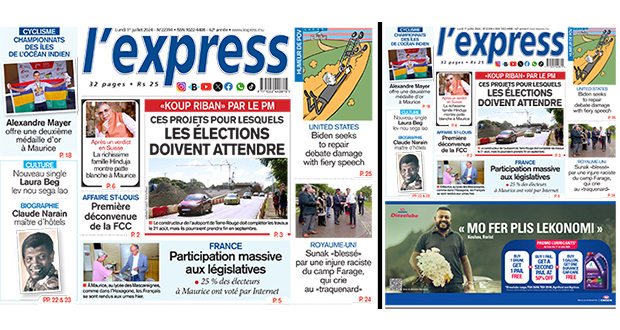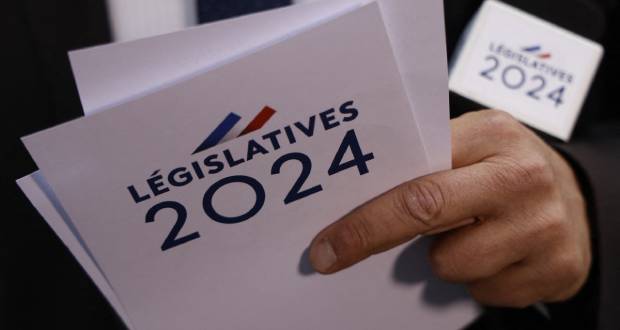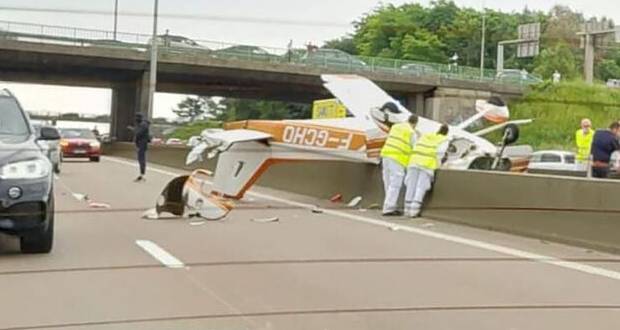Publicité
Digested week
Education in dire straits
Par
Partager cet article
Digested week
Education in dire straits

The federation of private secondary school managers met the press on Friday to vent out the daily challenges and red tape they are confronted with.
After forty-seven years of free education for all and large sums of taxpayers’ money being injected to achieve it, the country still faces challenges as standards go down and the social returns do not match the investments…
“Education is the cornerstone of our progress and prosperity. Our children today enjoy free education, from pre-primary to tertiary. We will continue to invest in our education system, school infrastructure and our students through the provision of Rs 21 billion.” This is the statement of finance minister Renganaden Padayachy at the item of education in his Budget speech. Amongst other measures, we have highlighted a few, such as the Free Pre-Primary Education Scheme that started in January 2024 with 36,000 children concerned; an increase of 10 percent for SEN schools; a sum of Rs 250 million earmarked for the construction, upgrading and maintenance of school infrastructure at pre-primary, primary and secondary levels; and the minimum guaranteed per capita variable grant of Rs 1,000 for basic schooling expenses with Rs 239 million earmarked. This does not take into account the various CSG allowances doled out to families as child support. All this should have made everybody happy.
However, the reality is quite dreary. Last Monday, the 700 students of Triolet State Secondary School Boys, standing on broken tables and chairs in the middle of the school yard, flags in hand, were loudly protesting and refusing to enter their classes. They had not obtained the funds from the ministry of Education for the annual prize-giving ceremony and an adequate spot to hold their sports day. The police had to be called to restore order. Some time back, 11-year-old primary school pupils were caught red-handed by their teachers selling drugs. It is now well known that drugs, bullying, violence and indiscipline in and out of schools have become commonplace.
● An uphill battle for survival
On the other hand, the federation of private secondary school managers held a press conference on Friday to vent out their frustrations and the dismal conditions in which they are operating. The past decade has seen a gradual deterioration of their treatment by the Private Secondary Education Authority (PSEA) that oversees the grants they receive to run their schools. Their main contention is that the grant formula has been unilaterally modified with drastic cuts in the funding that has left most schools struggling to provide adequate resources for the welfare of both pupils and staff.
For example, the PSEA will disallow items like tea and newspapers. The lengthy process to register a teacher can take months and they have to pay from their own funds. This results in shortage of teachers. They have to go through endless procedures and so much red tape for infrastructure and equipment to provide quality teaching and so many items are disallowed and cut from their grants that some schools find themselves out of funds to cater for basics like water and electricity bills.
What the managers resent the most is that they have been treated as “liars or manipulators” by the minister who has questioned the “governance” or “transparency” of their management. They consider themselves as major stakeholders in providing education to about 50% of the school population and hope that their pleas will be heard in the interest of those children.
● The myth of equality
When secondary education became free for all in 1977, it came from a good intention to offer equal opportunities to all. In fact, it has benefited those who could never have achieved their full potential. Unfortunately, it has triggered adverse effects that have brought us to the situation we are in today. It engendered a rat race and cut-throat competition for star schools. Since they no longer had to pay school fees, parents invested in private tuition, which became a flourishing industry.
Unfortunately, the fittest survived and the more vulnerable started to be left by the roadside. The quality of education started going downhill followed by reform after reform that only made things worse. So many students failing the PSAC are still illiterate and innumerate. The extended programme meant for them registered a pass rate of 3% and 7% respectively in 2022 and 2023. The percentage of students succeeding the nineyear basic education dropped to 65.4 % in 2023. The pass rate at School Certificate level dropped by 7.5% and more than 50% did not obtain five credits. What happens to all these academic drop-outs? Have we provided them with learning opportunities and basic skills to face the challenges of our complex world?
 Education in Mauritius is provided free from preprimary to tertiary. A budget of Rs 21 billion has been earmarked for 2024-25.
Education in Mauritius is provided free from preprimary to tertiary. A budget of Rs 21 billion has been earmarked for 2024-25.
Over the years, more and more parents have made the conscious choice of sending their children to private fee-paying schools because they do not trust the quality of education in conventional schools or just because they can afford to do so. Reacting to the Budget measure that parents who have children in fee-paying schools can now deduct Rs 60,000 from their income tax return, had this to say: “I chose to send my kid to a private school; I don’t need the rebate and I would have preferred this money to go to a ZEP school instead to improve the teaching there.”
The future of a country lies in its children but there is no one-size-fits-all solution in education. In the context of Rs 21 billion of taxpayers’ money that will be spent to that goal, can we just wish that care is taken to ensure that all children who go into the system can leave it with the basic skills of literacy and numeracy that will help them to have a meaningful life?

Publicité
Les plus récents






